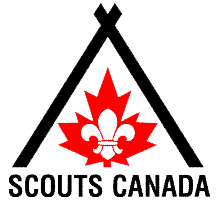 In the beginning…
In the beginning…
Lord Robert Baden-Powell, who was an officer in the British Army more than 100 years ago, is the founder of the Scouting movement. He wanted to provide healthy, organized outdoor adventure and character development for young men and women. He held an experimental Scout camp with approximately 20 boys on Brownsea Island off the coast of England from August 1st to 8th in 1907. It was so successful, it came to be seen as the beginning of Scouting. His wife, Olave started the Guiding movement for girls. Each year on the anniversary of Baden-Powell’s birthday – 22 February 1857 – the scouting organization celebrates Scout and Guide Week, which includes Thinking Day. This day is our way of remembering the man who started this adventurous program.
1st Applewood Beavers
At this level, boys and girls learn to share, develop friendships and have fun. Outings might be nature walks, short hikes and visits to local places of interest such as libraries, fire halls and police stations. Weekly activities would include arts and crafts, games and learning new songs.The Beavers meet every Wednesday from 6:30pm – 8pm at Applewood United Church.
1st Applewood Cubs
Cubs is the level for boys and girls aged eight to ten. The cub group is called a pack. More outside activities are involved at the cub level, such as longer hikes, going away on weekend camping trips, sleeping in lodges in colder weather, learning about camping in tents in warm weather, and perhaps paddling a canoe for the first time. There is singing songs and roasting marshmallows around a camp fire, skating and swimming. At the weekly meetings, Cubs begin to build models – Kub Kars – that can be raced at the annual Kub Kar Rally. Cubs learn new games, like floor hockey, which is one of the favourites. They learn how to perform plays and skits in front of an audience, and complete activities in order to earn badges.
The Cubs meet every Wednesday from 7pm – 8:45pm at Applewood United Church.
At both levels the boys and girls are encouraged to involve in community service, where age appropriate. For example, they visit seniors to assist in activities, cook and serve at special events such as the Circle of Faith Habitat for Humanity build, and plant trees every year on greenbelts and ravines.
At all levels, they learn skills that promote self-reliance and personal development, and have fun with their friends in the process.



